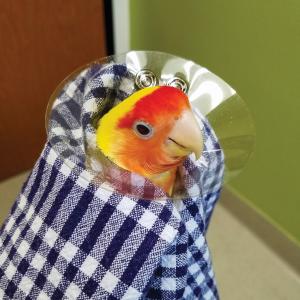Find Your Training Content
Search, filter and sort the hundreds of videos, lectures and articles so you can find exactly what you’re looking for.
Critical Care Management of the Exotic Patient (Part One): Avian and Reptiles
Companion animals come in all shapes and sizes; feathers, scales and fur. Part one of this two part series will focus on the critical avian and reptile patient. Presented by Patient Care and Educational Specialist Sarah Harris, CVT, VTS(ECC), you will…
You have been assigned this activity.
Critical Care Management of the Exotic Patient (Part Two): Rabbits, Ferrets and Small Mammals
Small mammals seeking veterinary care are not limited to cats and dogs. The final part of this series will focus on the exotic small mammal patient. Presented by Patient Care and Educational Specialist Sarah Harris, CVT, VTS(ECC) you’ll learn basic…
You have been assigned this activity.



